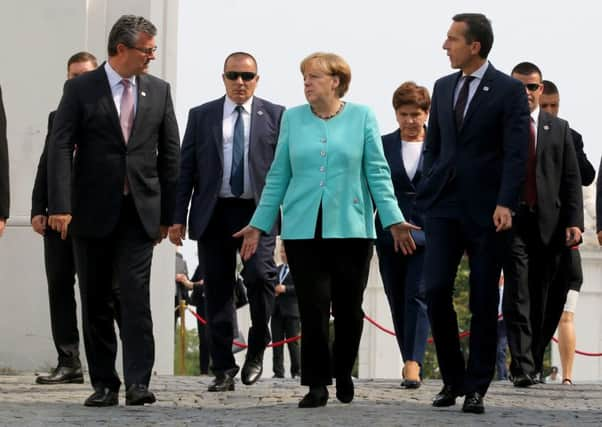Leader comment: EU divisions test realms of the possible


In the current landscape, it is a credible question whether it is actually possible to reconcile the differences emerging in Europe.
German chancellor Angela Merkel kicked off proceedings by acknowledging that the EU is in a “critical situation”, which sets a tone for the discussions to come.
Advertisement
Hide AdAdvertisement
Hide AdThere is frustration among European leaders about Theresa May’s reluctance to trigger Article 50 negotiations, as the ominous shadow of Brexit looms large over proceedings.
Jean-Claude Juncker made it clear in his state of the union address this week that he isn’t prepared to dwell on Britain’s decision to leave the EU. He simply wants us out now.
In some ways Brexit could just be the start of their worries, as divisions are growing among the remaining members.
The migrant crisis in particular has exposed a deep and concerning rift between different factions.
An alliance made up of the Czech Republic, Slovakia, Hungary and Poland, known as the Visegrad Group, objects to the EU quota system which distributes refugees equally across the EU to ease the burden on Italian and Greek borders.
Slovakian prime minister Robert Fico, who is hosting the meeting, has spoken bombastically about how the country will not accept “one single Muslim migrant”.
The Czechs also reject the migrant quotas, while Hungary has stoked the fire by proposing a controversial referendum next month on whether the country should refuse to adhere to the quotas.
Luxembourg’s foreign minister Jean Asselborn has called for Hungary to be suspended from the union altogether for violating the project’s fundamental values through its treatment of refugees.
Advertisement
Hide AdAdvertisement
Hide AdThe French and Germans leaders are among those committed to fighting for the survival of the European Union, especially as both nations have important elections approaching next year.
Populist politicians in many nations have capitalised on the fear and uncertainty of the migrant crisis, so many leaders have to juggle internal politics and fighting for the future of the EU.
The chorus of dissenting voices is growing louder since Britain’s dramatic exit and it must becoming more difficult to ignore.
The rise of the Visegrad Group and its forceful views on where the EU needs to go seem to be opposed to the wishes of Germany and France.
In some ways this is an ideological split between the East and West, the new versus the old. But more importantly the values underlining the positions also seem to be at odds and it is hard to see how such a fundamental difference can be resolved.